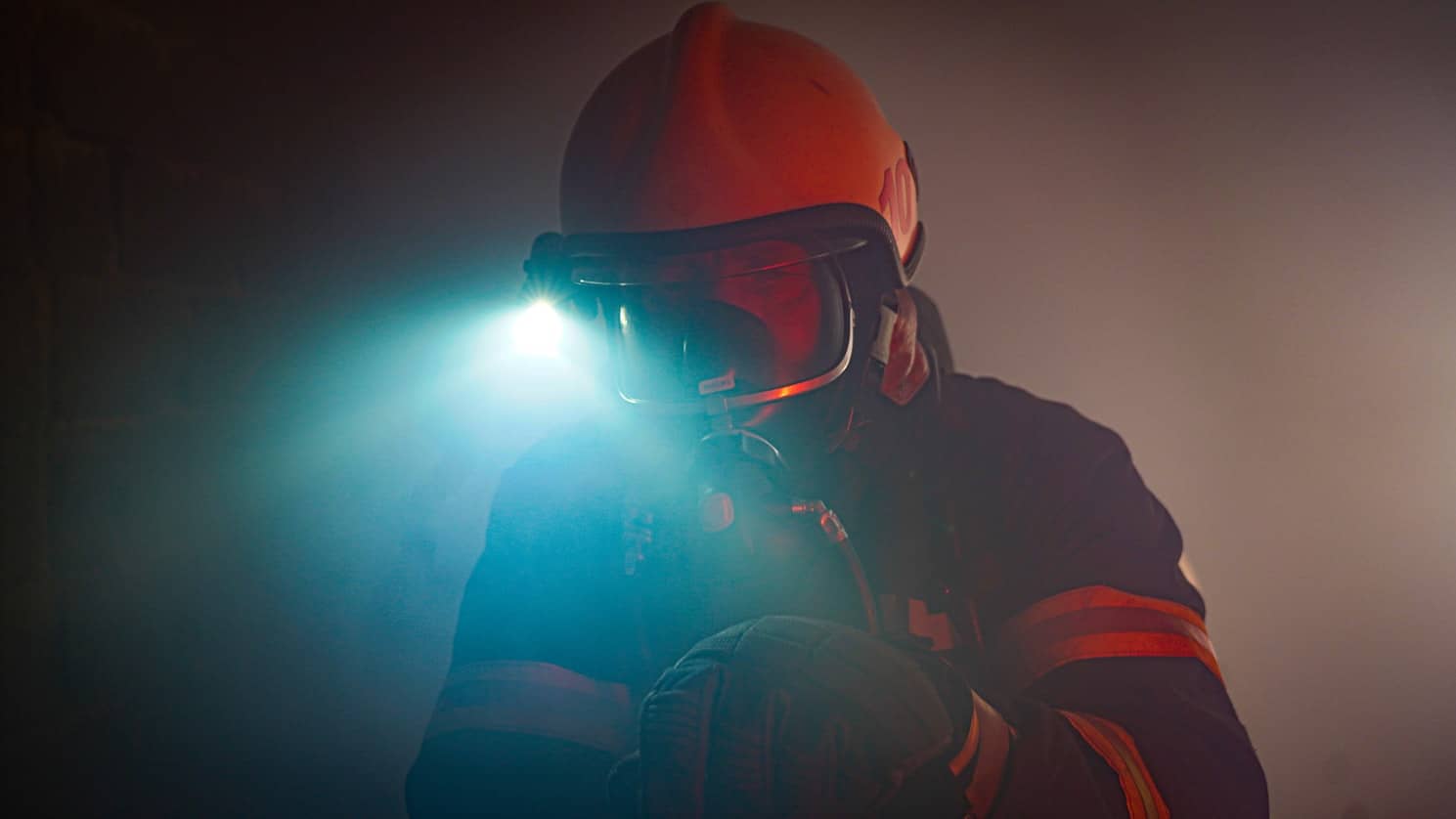Hampshire and Isle of Wight Fire and Rescue Service (HIWFRS) is urging residents to ensure they install adequate working smoke alarms as the number of house fires attended this year by the service has already exceeded 400.
HIWFRS has issued the warning during the National Fire Chiefs Council (NFCC) Home Safety Week which runs until 20 June.
Ensure their whole home is protected
Data released by the NFCC shows that in 25 per cent of UK house fires (2019-20) no working smoke alarms were present and in 18 per cent of cases where smoke detectors were fitted, smoke alarms failed to activate.
Whilst inadequate maintenance was a factor, the most common reason for the failure was the fact the fire was outside the alarm’s range, highlighting how vital it is for residents to ensure their whole home is protected in the event of a fire.
Amos: Working smoke alarms save lives
Group Manager for Community Safety at HIWFRS, John Amos, said,
“Working smoke alarms save lives and although that remains a vital message, we want to take the opportunity during NFCC Home Safety Week to remind people that they need to assess the needs of their individual homes when determining the level of protection they need, and in which rooms smoke alarms should be fitted.
“We advise fitting at least one smoke alarm on every floor of the home and ideally these should be fitted in the rooms that are used most often as this is where a fire is most likely to start. We offer additional support to fit smoke alarms for those who are most vulnerable to fire via our Safe and Well visits.”
Bywater: Have the right detection in the right places
James Bywater, NFCC Lead for Home Detection commented,
“NFCC want people to think about the risks in their homes and ensure they take action to prevent incidents and ensure they have the right detection in the right places to be alert if an incident happens.
“Home detection technology has advanced and products with sealed batteries or interlinked systems are available and as part of your home safety plan may give you and your family precious time to escape.”
Incidents of note
- 10th June, 20:20: Crews from Sandown, Ryde, Shanklin and Newport Command Support were called to a house fire on the Isle of Wight after a neighbour heard an alarm sounding in the property. A stove fire was out on arrival and one adult male was rescued from the ground floor of the property. The working smoke alarm alerted the neighbour who was able to call for help, highlighting the importance of having adequate working smoke detection in a property.
- 9th June, 11:45: Firefighters from Redbridge, St Mary’s and Eastleigh attended an end of terrace property fire in Southampton. Four sets of breathing apparatus, one hose reel and two hose reel jets were used to tackle a kitchen fire. Due to the alarm being raised in good time, all persons were quickly accounted for, and the stop message came in at 12:46. Cooking should never be left unattended.
- 4th June, 11:10: Havant, Cosham and Portchester firefighters were called to a fire in Havant caused by a candle on top of a fridge-freezer. Thick black smoke was issuing from the ground-floor property of the four-storey building as HIWFRS arrived. Crews used four sets of breathing apparatus, one hose reel and one jet to extinguish the blaze, as well as using tactical ventilation fans to clear smoke from the premises. The working smoke alarm gave the occupant an early warning, allowing them to exit and close fire doors behind them, containing the blaze and limiting damage to the property. Candles should always be secured in a candle holder and never left unattended.
Top Tips
Aim to fit a minimum of one smoke alarm on every floor of your home (in a circulation space such as a hall or landing).
Additional smoke alarms should be fitted in every room in the house which is regularly inhabited (i.e. bedrooms, living rooms, dining rooms) based upon the fire risk to the occupants.
Where possible, smoke alarms should be inter-linked so that all will activate within the property irrespective of the fire location.
Test smoke alarms regularly (ideally once a week but at least once a month).
- Find out more about Safe and Well
- Access further home fire safety advice on our Website.
- Find out more about NFCC Home Safety Week
News shared Hampshire and Isle of Wight Fire and Rescue Service (HIWFRS), in their own words, Ed
Image: Nejc Soklic under CC BY 2.0





